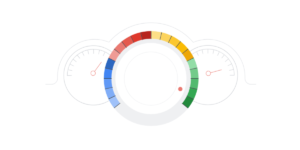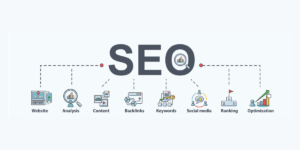
Where virtually every business has an online presence, the role of a webmaster has become increasingly vital. But what exactly does a webmaster do, and how can you embark on a successful career in this dynamic field? In this guide, we’ll delve into the intricacies of the webmaster career path, exploring the necessary skills, educational requirements, job prospects, and more.
Understanding The Role Of A Webmaster
At its core, a webmaster is responsible for overseeing the maintenance, design, and functionality of a website. This multifaceted role encompasses a range of tasks, including:
Website Development: Webmasters are proficient in various programming languages such as HTML, CSS, JavaScript, and PHP. They use these languages to create and modify website layouts, ensuring optimal user experience and functionality.
Content Management: Managing website content involves creating, editing, and updating text, images, and multimedia elements to keep the site fresh and engaging.
Website Performance Optimization: Webmasters optimize website performance by implementing techniques such as SEO (Search Engine Optimization), responsive design, and performance monitoring to enhance user experience and increase traffic.
Security Management: Protecting the website from cyber threats is paramount. Webmasters implement security measures such as SSL certificates, firewalls, and regular backups to safeguard sensitive data and maintain website integrity.
Essential Skills For Aspiring Webmasters
To thrive in the competitive landscape of web development, aspiring webmasters should cultivate a diverse skill set, including:
Proficiency in Web Development Languages: Mastery of HTML, CSS, JavaScript, and other programming languages is essential for building and maintaining websites.
Content Management Systems (CMS) Knowledge: Familiarity with popular CMS platforms such as WordPress, Joomla, and Drupal enables efficient content management and customization.
Graphic Design Skills: A keen eye for design principles, coupled with proficiency in graphic design tools like Adobe Photoshop or Illustrator, allows webmasters to create visually appealing and user-friendly websites.
Problem-Solving Abilities: Webmasters encounter various technical challenges, from coding errors to server issues. Strong problem-solving skills are crucial for troubleshooting and resolving issues promptly.
Communication Skills: Effective communication with clients, team members, and stakeholders is vital for understanding project requirements, providing updates, and addressing feedback.
Educational Pathways And Training
While a formal degree is not always mandatory for a career as a webmaster, many employers prefer candidates with relevant education or certifications. Common educational pathways include:
Bachelor’s Degree in Computer Science, Information Technology, or Web Development: A four-year degree provides a solid foundation in programming, web development, and related technologies.
Online Courses and Certifications: Platforms like Coursera, Udemy, and Codecademy offer a plethora of online courses and certifications in web development, providing flexible learning options for aspiring webmasters.
Self-Study and Practical Experience: Many successful webmasters are self-taught professionals who honed their skills through hands-on experience, experimentation, and continuous learning.
Job Outlook And Career Opportunities
The demand for skilled webmasters continues to grow as businesses recognize the importance of a robust online presence. According to the U.S. Bureau of Labor Statistics, employment of web developers, including webmasters, is projected to grow 13% from 2020 to 2030, much faster than the average for all occupations.
Career opportunities for webmasters span various industries, including:
Technology Companies: Tech firms often seek webmasters to manage their online platforms, including corporate websites, e-commerce portals, and web applications.
Digital Marketing Agencies: Webmasters play a crucial role in digital marketing agencies, where they optimize websites for SEO, implement marketing campaigns, and analyze website analytics to drive traffic and conversions.
Freelance and Consulting: Many webmasters choose to work independently as freelancers or consultants, offering their expertise to clients on a project basis.
Being A Webmaster Is Rewarding
A career as a webmaster offers a dynamic and rewarding path for individuals passionate about technology, creativity, and problem-solving. With the right skills, education, and determination, aspiring webmasters can carve out successful careers in this ever-evolving field, shaping the digital landscape one website at a time. Whether you’re just starting your journey or looking to advance your existing skills, the world of webmaster careers awaits!

My name is Greg and I have 20 years of experience in creating and managing websites. I have 6+ million views collectively on social media platforms like Quora, Facebook, LinkedIn, and Instagram. Contact me to get your website optimized for search engines.











